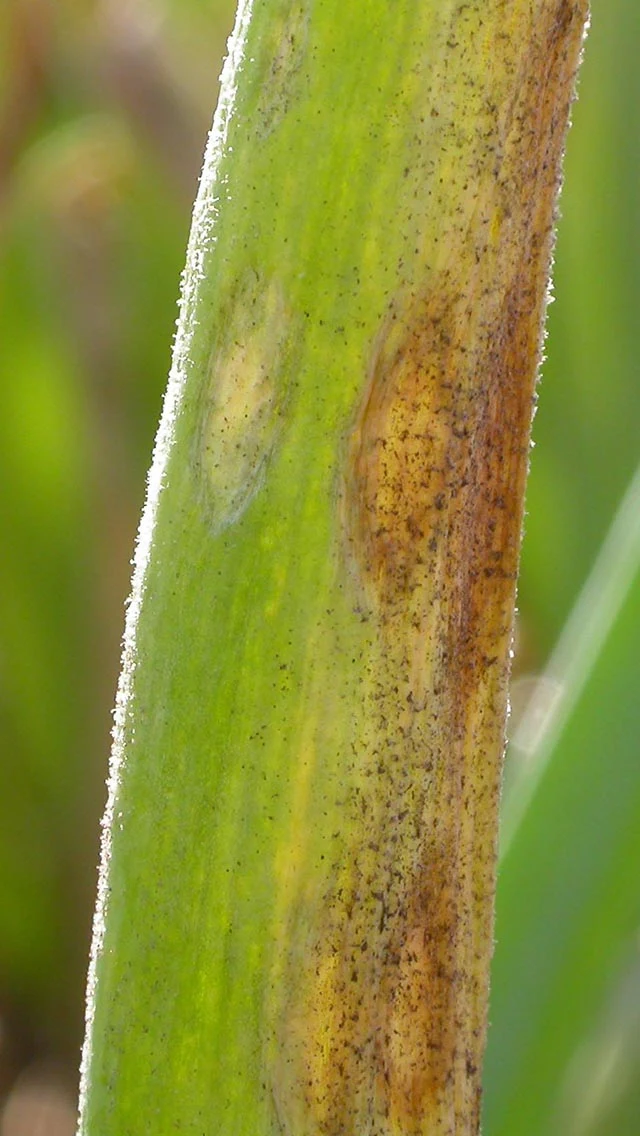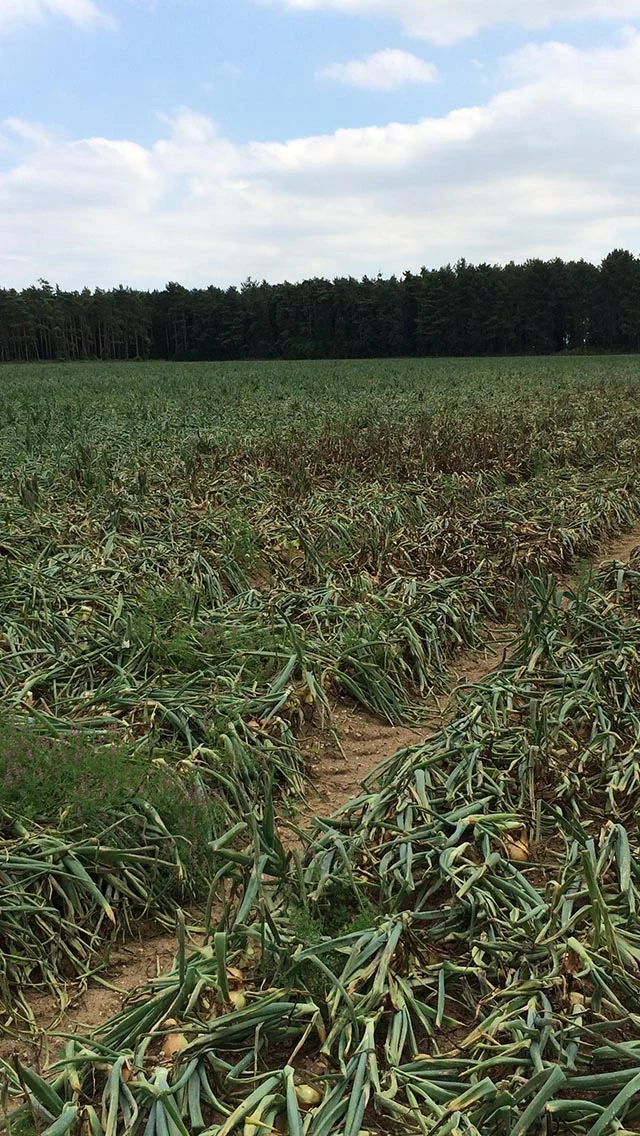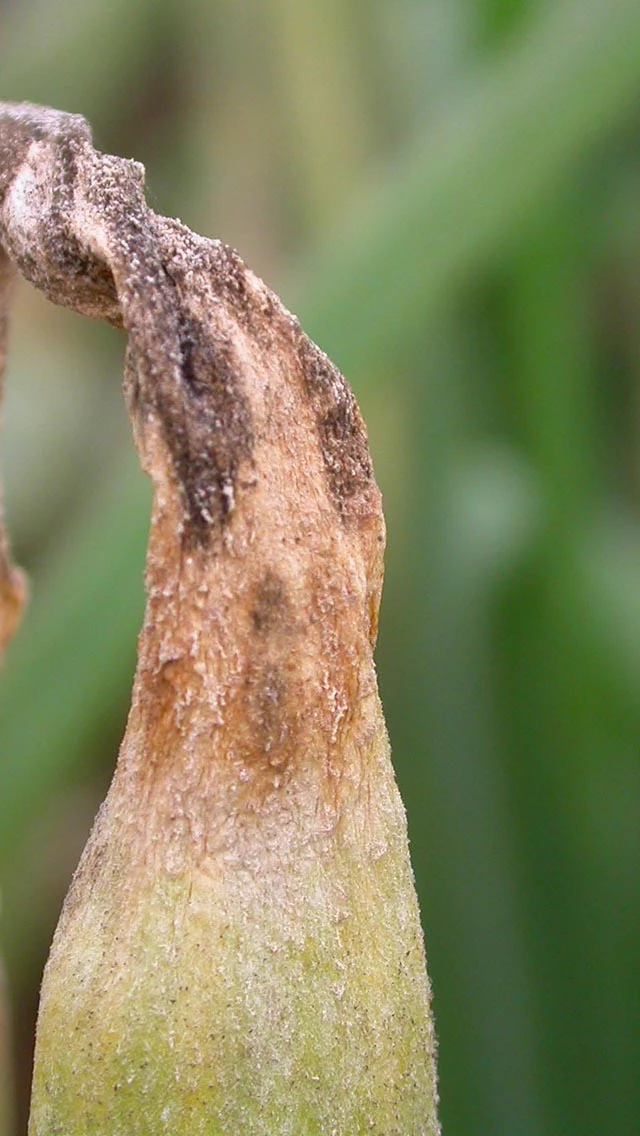
Downy Mildew - Leeks/Onions
Close up, close up of leaf symptoms & field symptoms on onions.
Pathogen
Fungus
Hosts
Onions and leeks
Symptoms
Irregular lesions are initially found on the older leaves. The leaf area under these early infections are at first a pale green colour which later become visibly more yellow. These lesions later develop a typical downy mildew grey / purple mycelium containing fruiting bodies (sporangia) which can spread spores by rain splash or over longer distances on the wind.
In severe attacks whole leaves can be lost. Infections can further spread systemically to the bulbs of onions and shallots which become soft and shrivelled adversely affecting bulb quality and size. Affected areas of plant tissue can be further colonised by other bacterial or fungal pathogens.
Development
Mostly associated with onions but can also be found on leeks, garlic and chives.
Infections typically develop from late May into summer. Usually first noticed in foci which if untreated spread out to affect wider areas of the crop.
Can survive to infect subsequent spring crops via infected plants or bulbs or as resting spores in the soil which can survive for several years.
Favourable Factors
Cool wet seasons especially in areas of high rainfall.
Importance
An economically important disease of onions.
Control
Clean seed, sets and bulbs
Rotation
Removal of volunteers and discarded plant debris
Use of fungicides at first sign of infection
Decision support systems have been developed for this disease
Onion downy mildew - field symptoms

Field symptoms on onion crop

Close up


